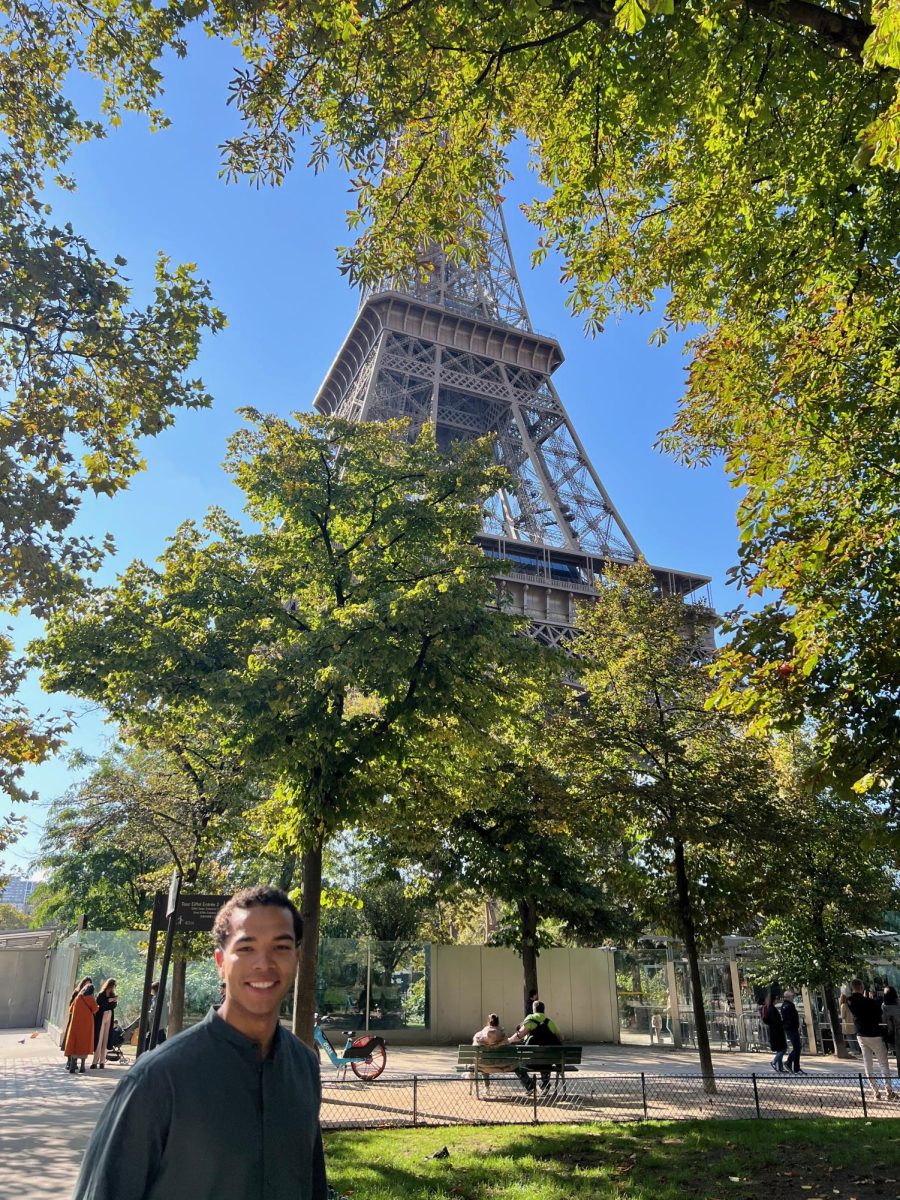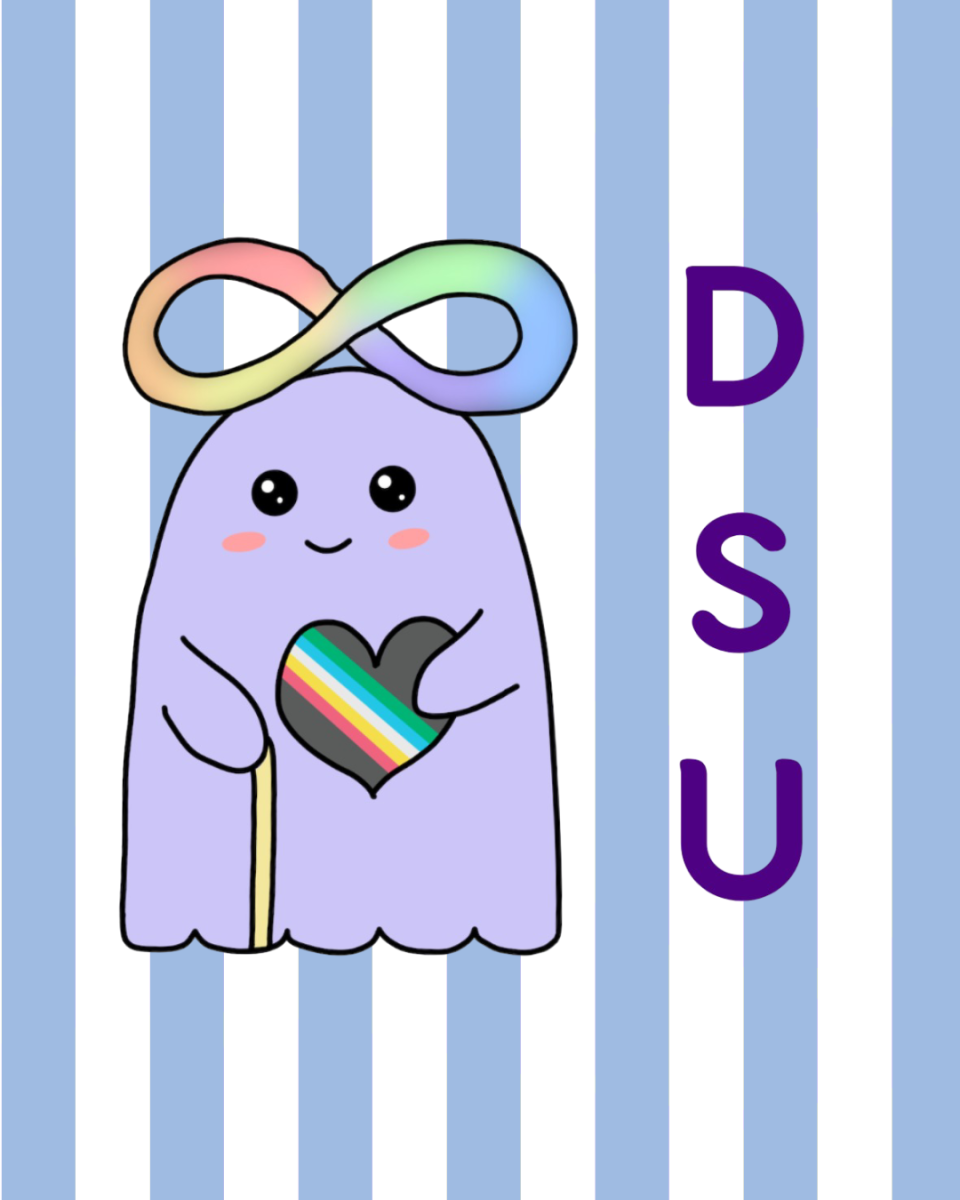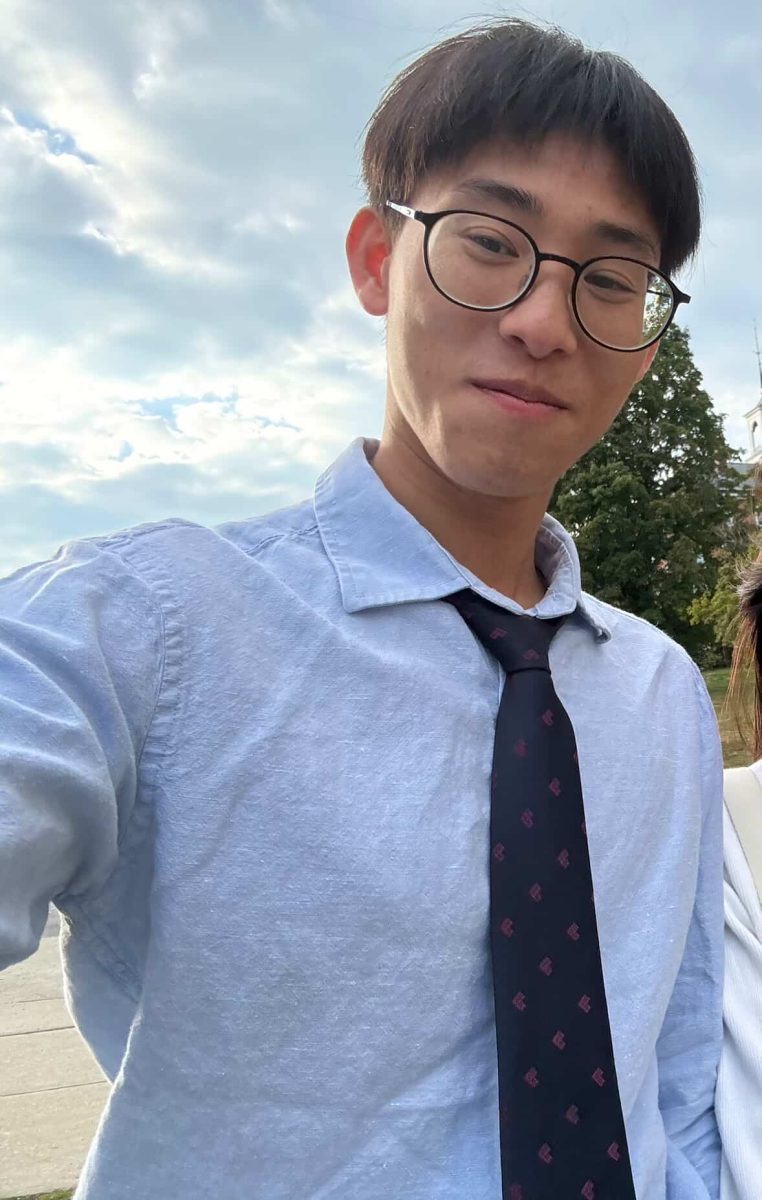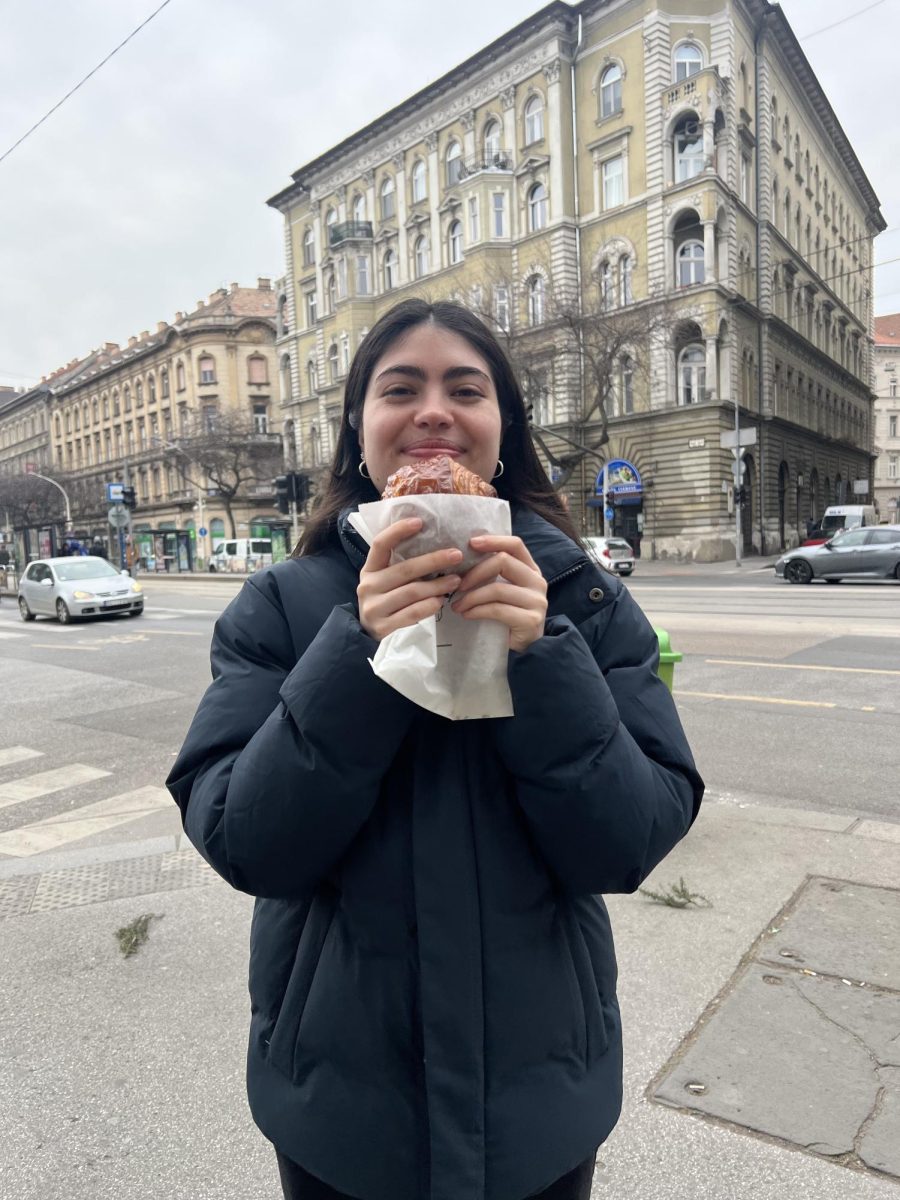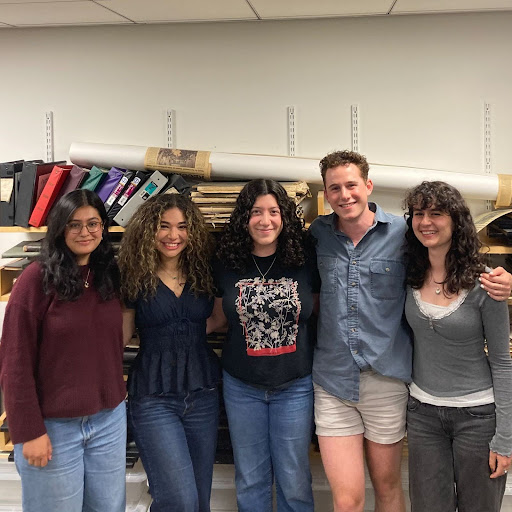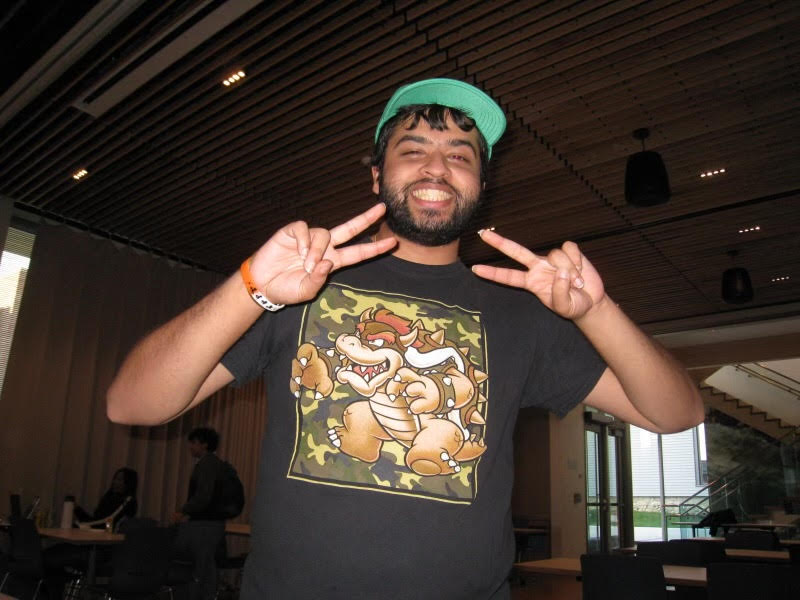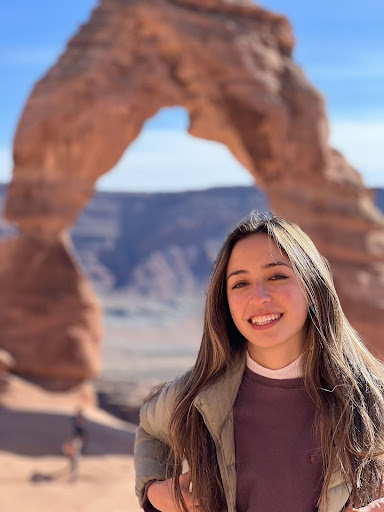
Each week, the Record (using a script in R) randomly selects a student at the College for our One in Two Thousand feature, excluding current Record board members. This week, Gabby Brown ’27 discussed her job at Tea and Boba Lounge, her experience on the women’s rugby team, and her recent foray into sitar lessons. This interview has been edited for length and clarity.
Dalia Levanon (DL): First thing’s first. You’re from Rhode Island. Would you say that plays a large role in your identity?
Gabby Brown (GB): I don’t think about being from Rhode Island until it’s time to defend Rhode Island, because it’s so minuscule and unimportant to other people. When I’m in Rhode Island, I’m like, “It’s just Rhode Island,” but when I’m away I think, “Actually, our beaches are really nice and our food is really good.” I basically turn into the minister of tourism. But in terms of identity, I don’t really feel like a New Englander. I don’t have the accent or anything, and I’m also originally from Florida, so I missed the age where you become a New Englander.
DL: Since we’re at Tea and Boba Lounge, tell me about how you came to work here.
GB: One of my friends got the job first, and the application had closed. But then he was like, “Just apply anyways, I’ll send it to you,” because it wasn’t available anymore. Then I filled it out, and like a minute later, I got an email about doing an interview. I did the interview, and then got the job just before the shop’s opening. I didn’t know anything about what it was going to be like.
DL: What is it like to work here?
GB: It’s a really chill job. It’s very intergenerational because it’s the owner, us college students, and a couple of high schoolers. I think it’s the easiest way to meet people who live in Williamstown. It makes it feel less like a playtown, like a fake old Western. [Laughs.]
DL: Do you have a favorite drink to make?
GB: Yes, I’m taro-obsessed, so I like an ube-lined cup with taro and brown sugar boba.
DL: Aside from making bubble tea, you spend a lot of time on the rugby field. When you started at the College, did you think you would join women’s rugby? What has it been like?
GB: I played a summer or two of co-ed rugby at home, which was super crazy, and I didn’t think I was ever going to play again. Then, I got to campus and thought, “Why not?” Shout-out to Marta [Symkowick ’25]. She was the captain when I was a frosh, and I avoided her for all of first semester. After saying that I wanted to play, I would literally sleep through matches, tell her I couldn’t go to practice, and then run into her in the dining hall. [Laughs.] Second semester, I was like, “Okay, let me lock in and do this thing.” Ever since, it’s been very fun. I’m now a captain, and it’s one of my favorite things because I meet people that I wouldn’t usually meet. I think we have the most diverse team — club, varsity, or otherwise — which is very fun.
DL: Do you have a favorite game that you played?
GB: Our one home game from last season was so fun because it was our first time playing with a team that was entirely ours. In the past couple of years, the rugby team has been very, very, tiny, and we’re finally getting up in size. We had a team that was completely from the College, so we didn’t have to share jerseys with anyone, we had subs, and people actually came to watch — we had sideline supporters, which is something I hadn’t previously experienced for rugby. So it was super fun. After that game, other people got interested in wanting to play. We were undefeated that entire tournament.
DL: You were recently selling Valentine’s Day treats at Paresky as part of a fundraiser. Can you tell me about that?
GB: I’m the secretary for the Quare Collective, which is an affinity group on campus for Black queer students. Every year, we host a Valentine’s bake sale, where all of our proceeds go to Black-trans survival funds that provide mutual aid. It was super cool because we made a large profit in the end. Then, BSU [Black Student Union] did a fundraiser for their Valentine’s Day party, and they gave us proceeds from that, too. So, putting everything together, we’re at almost $1,000 that we can donate to the survival funds. It’s been the most fulfilling thing that I’ve had a chance to do all year.
DL: We met through the LIFT (Learning Interventions for Teens) Winter Study program, where you worked with a high school student in the juvenile justice system on a project about skateboard fashion. What inspired you to do LIFT?
GB: Doing LIFT was kind of a no-brainer for me, because I was just thinking about how I knew I was going to be on campus, and I asked myself, “What is the best use of my time?” I haven’t been around teenagers in a minute, so I had this idea that they would be standoffish, but they got along with us so quickly. They had super cool interests, were crazy conversationalists, and were just super cool people.
DL: On another note, I know you’re studying sociology. What made you want to major in it?
GB: I’ve always been really interested in how society maintains itself, how it functions, and what makes us act in the ways we do. Sociology is obviously perfect for that. Actually, first, I was gonna be an anthropology major, but no lie, “ANTH 101” was at 8:30 a.m. and I was like, “I’ll take ‘SOC 101’ instead. It’s basically the same department.” [Laughs.]
DL: What’s one thing that you want to do this semester that has zero practical value?
GB: I just started taking sitar lessons. I love Daily Messages, and I’m always signing up for things. It’s really nice to be really bad at something in a very small space, and have the room to do that. Now I can say that I’ve played a sitar before, which is something I otherwise would not have had an opportunity to do.
DL: Do you have any last thoughts?
GB: Oh my God, this might be petty, but there’s another person that has these glasses, Esther [Eboh ’26]. I’m not Esther. [Laughs.] Every day, someone waves at me and says, “Hi Esther.” I had someone hug me one time, and they were like, “Hi Esther,” and I’m not Esther. That’s it. Honestly, that’s the most important thing I’ve said this entire interview.






